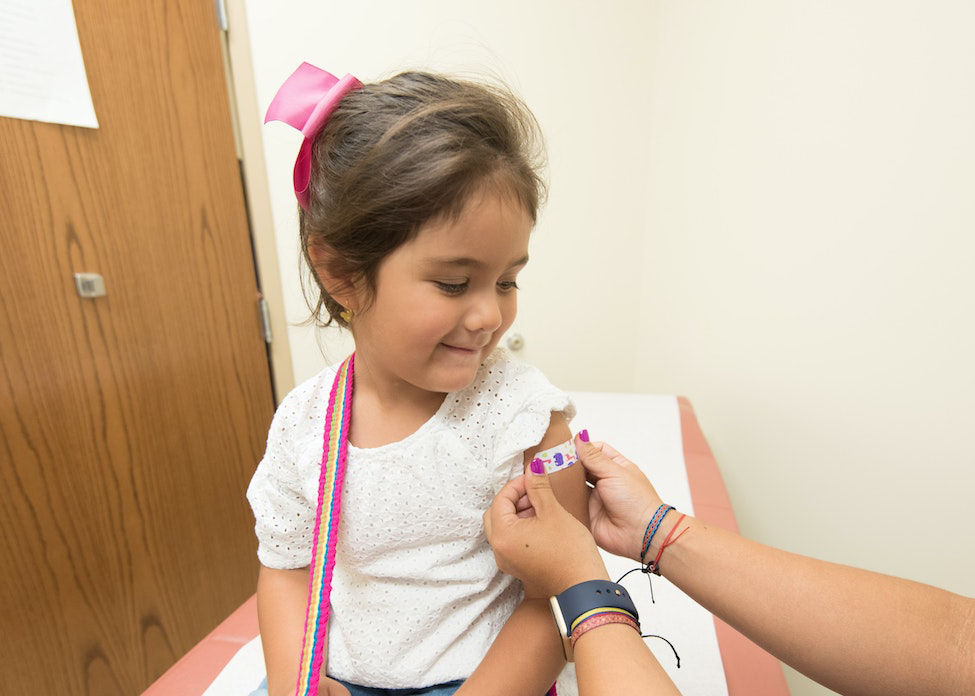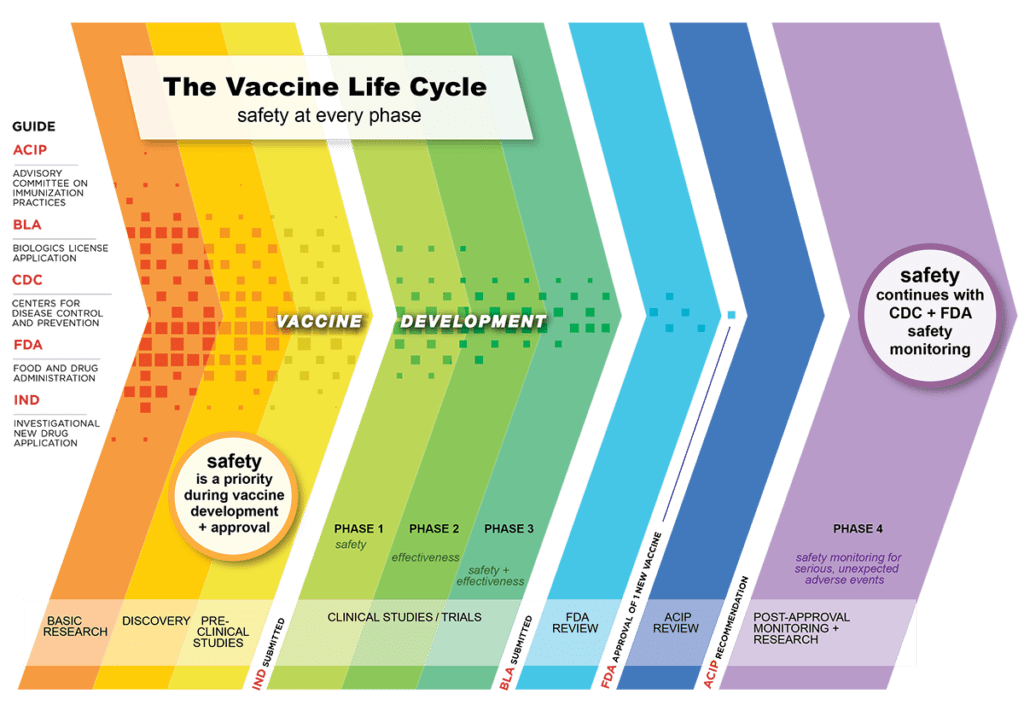Although further research is being conducted to ease potential concerns, the recommended childhood vaccines are safe and provide essential protection, experts told a June 23 Centers for Disease Control and Prevention (CDC) meeting.
“The benefits of vaccination strongly outweigh the known and potential risks,” Dr. Matt Daley explained during his presentation to the CDC’s Advisory Committee on Immunization Practices (ACIP), which was part of a three-day meeting where data from several studies on childhood vaccination schedule safety was presented.
Dr. Daley works at the Institute for Health Research, Kaiser Permanente Colorado, and collaborates with the CDC through the Vaccine Safety Datalink (VSD) project. He outlined research showing that vaccines do not increase the risk of non-vaccine-targeted infections, nor do vaccines increase the risk of type 1 diabetes. He also presented a study that raised questions about whether the aluminum used as an adjuvant in some vaccines can increase the possibility of asthma in children.
“Additional study is ongoing about any relationship between vaccine-associated aluminum and asthma risk. This was an unanticipated finding and has not been replicated,” Dr. Daley told the meeting.
After Dr. Daley’s presentation, CDC’s ACIP heard a presentation on a study from Denmark that found no association between aluminum as an adjuvant and subsequent asthma.
The meeting is important because ACIP recommends the vaccines children should receive. In making their decisions, ACIP relies on data from the CDC Immunization Safety Office, which collaborates with health institutions like Dr. Daley’s through the VSD initiative.
Is there a link between aluminum and asthma?
The recommended childhood vaccines have a long-proven safety profile. But research has been conducted into the safety of aluminum adjuvants because it is important that everyone have confidence in vaccines, Dr. Daley said.
“In the United States and globally, parents have expressed concern about the safety of the immunization schedule, including regarding the safety of repeated exposure to nonantigen vaccine components such as aluminum,” according to the study Daley’s team published in September. “A small but increasing number of parents have refused, delayed, or spread out vaccination; this practice increases risk of vaccine-preventable diseases and vaccine-associated febrile seizures without yielding any scientifically proven safety advantage.”
Since the 1930s, small amounts of aluminum have been added to vaccines as an adjuvant—an ingredient that helps a vaccine work by encouraging a stronger immune response. This helps the body produce antibodies to the pathogen that the vaccine is intended to fight. As the CDC notes, aluminum is one of the most common metals in nature, present in air, food, and water, and using it as an adjuvant has proven safe over the years.
Dr. Daley’s study involved a review of more than 325,000 children born between 2008 and 2014 and followed them through 2017, looking at the vaccines they received before age 2. The study included a sample of more than 14,000 children with eczema, which is considered an early indicator for asthma. The initial analysis found “a small positive association between cumulative vaccine-associated aluminum before 24 months and persistent asthma in 24-59 months,” Dr. Daley reported.
Secondary analyses, with more restrictive inclusion (meaning a smaller sample size) showed positive associations.
Given the many limitations of the study, the low statistical association found, and the benefits of vaccination, these findings do not indicate a need for change in the vaccine regime, Dr. Daley stressed. However, they do indicate a need for further study, he said.
Further studies into vaccine safety
Another study presented at the ACIP meeting was by Dr. Anders Hviid of the Statens Serum Institut in Denmark, where extensive national health records are available. That study, from 2011-2018, looked at 470,477 children born between 2009-2016 with follow-up from ages 2-5.
It found “no support for an association between aluminum in vaccines and asthma by 5 years of age in Denmark,” Hviid said.
The childhood immunization schedule safety will be continue to be monitored to ensure vaccine safety. Dr. Daley said a new study will feature a larger cohort of participants and look at exposure to aluminum before 12 months and asthma diagnosed at a later age, 60-84 months.





